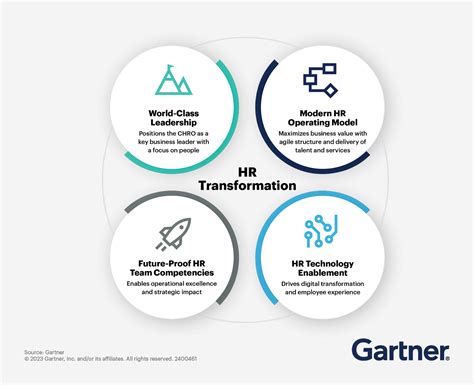In an ever-evolving business environment, the role of Human Resources (HR) has undergone a profound transformation, extending far beyond traditional administrative tasks. Today, HR plays a pivotal role in shaping organizational culture, fostering innovation, and driving business success.

The Evolution of HR: From Administration to Strategic Partner
Traditionally, HR focused on administrative functions such as recruitment, compensation, and benefits. However, in recent years, the function has expanded significantly to encompass a broader range of responsibilities:
-
Talent Management: HR now plays a crucial role in attracting, developing, and retaining top talent. This includes identifying high-potential employees, providing training and development opportunities, and implementing performance management systems.
-
Culture Creation: HR is responsible for shaping and maintaining a positive and productive organizational culture. This involves defining core values, fostering collaboration, and creating a sense of belonging among employees.
-
Strategic Planning: HR provides valuable insights into the workforce that can inform strategic decision-making. This includes identifying skills gaps, anticipating future workforce trends, and developing succession plans.
HR as a Business Partner
In today’s competitive business environment, HR has become an essential business partner, collaborating with other departments to achieve organizational goals. This partnership is particularly evident in areas such as:
-
Business Growth: HR supports business growth by ensuring a skilled and engaged workforce that can meet evolving customer demands.
-
Innovation: HR fosters innovation by creating a culture that encourages risk-taking, experimentation, and continuous learning.
-
Employee Engagement: HR plays a key role in boosting employee engagement, which has been linked to increased productivity, customer satisfaction, and profitability.
Key HR Metrics: Measuring the Impact of HR Functions
HR departments are increasingly using metrics to measure the impact of their activities on the organization. Key metrics include:
Metric | Description
—|—|
Employee Turnover Rate | Percentage of employees who leave the organization
Employee Engagement Score | Measure of employee satisfaction and commitment
Time-to-Fill | Average time it takes to fill a vacant position
Training and Development Expenditure | Percentage of revenue invested in employee training and development
Return on Investment (ROI) | Financial benefits realized from HR initiatives
Emerging HR Trends: Embracing the Future
As the business landscape continues to evolve, HR is adapting to meet new challenges. Key emerging trends include:
-
Data Analytics: HR is increasingly using data analytics to gain insights into employee behaviors, preferences, and performance.
-
Artificial Intelligence (AI): AI is being used to automate tasks, freeing up HR professionals to focus on more strategic initiatives.
-
Remote Work: The rise of remote work has created new challenges for HR, including managing virtual teams and maintaining a connected company culture.
-
Holistic Employee Experience: HR is moving towards a more holistic approach to employee experience, focusing on the entire employee lifecycle from recruitment to retirement.
The Value of Human Resources: A Strategic Investment
Human Resources is a valuable asset for any organization that seeks to achieve sustained success. By investing in HR, businesses can unlock significant benefits, including:
-
Increased Productivity: Engaged and motivated employees are more productive, leading to increased revenue and profits.
-
Improved Employee Retention: A positive employee experience reduces turnover rates, saving the organization time and money.
-
Enhanced Reputation: A strong HR function attracts and retains top talent, enhancing the organization’s reputation as an employer of choice.
-
Greater Innovation: A culture that fosters innovation and experimentation drives business growth and success.
-
Stronger Customer Relationships: Engaged and satisfied employees provide better customer service, leading to increased customer satisfaction and loyalty.
Conclusion
The role of Human Resources has undergone a profound transformation, from administrative tasks to a strategic partner that plays a vital role in organizational success. By embracing emerging trends and leveraging data analytics, HR departments can continue to adapt and thrive in the changing business landscape. Investing in HR is an essential step for organizations that seek to unlock the full potential of their workforce and achieve sustained growth.
